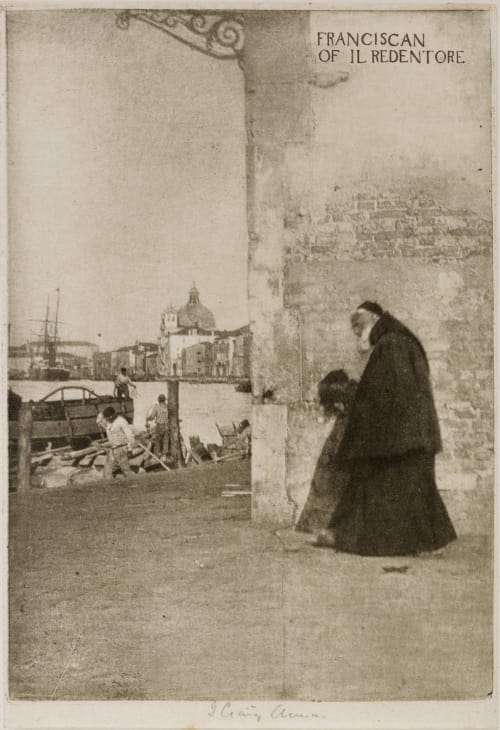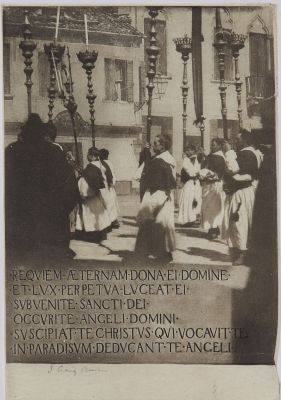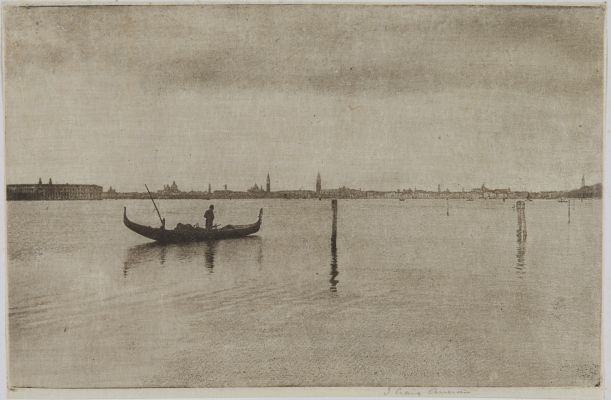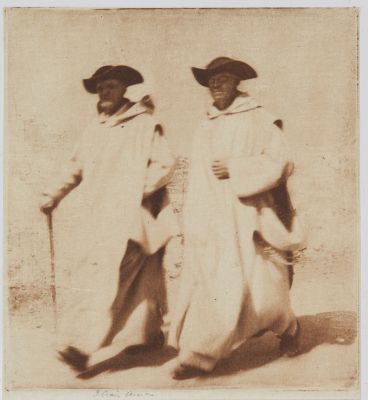
Title
A Franciscan, VeniceArtist
Annan, James Craig (Scottish, 1864-1946)Key FigurePublication
Venice and LombardyDate
1896Process
PhotogravureAtelier
T. & R. Annan & SonsImage Size
12.5 x 8.7 cm
‘Sometimes you have the feeling that here are all the makings of a picture – except for just one thing that seems to be missing. But what one thing? Perhaps someone suddenly walks into your range of view. You follow his progress through the view-finder. You wait and wait and then you finally press the button.’ Cartier-Bresson 1952
In 1884 James Craig Annan explained that to capture the the Franciscan he arranged and waited ‘fully’ half an hour with the whole composition arranged and without making an exposure, before the old gentleman in brown habit came along, and he is unaware of the great service he did me.1
This version was printed from a split negative. Close inspection proves that Annan notched together two negatives. The joint is hidden in the stone wall. Why Annan ‘composited’ an‘instantanous’ image is not known and indeed seems contradictory. It does however reveal Annan’s propensity to thoroughly work the plate. ‘The making of the negative is the first stage. While this initial operation requires great promptitude of action, the subsequent manipulation may be prolonged into a long-drawn-out pleasure.’ 2
Reproduced / Exhibited
Buchanan, William, and James C. Annan. J. Craig Annan: Selected Texts and Bibliography. New York: G.K. Hall, 1994. p.9
References
1 “Mr. Craig Annan’s Address at the opening of Exhibition of his Works at the Royal Photographic Society” The Amateur Photographer: An Illustrated Popular Journal. London: Hazell, Watson and Viney, 1884. 2 Feb 1900 p. 83
2 James Craig Annan, "Picture Making with a Hand Camera", The American Amateur Photographer, (27 March 1896.) p. 277











